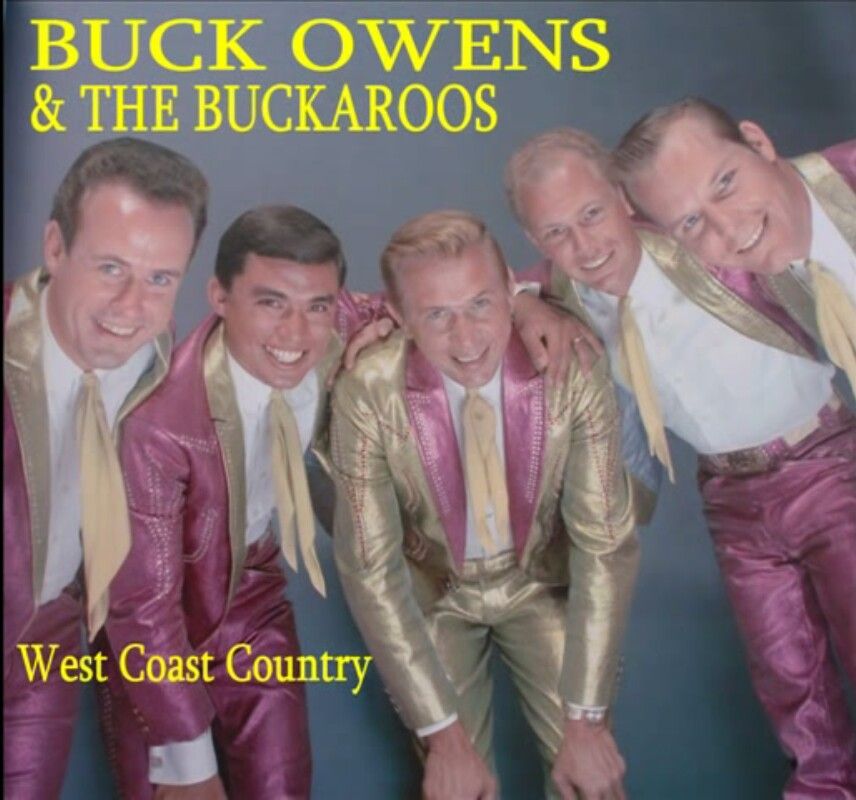
A quiet companion of sorrow — “Trouble and Me” is a small, tender confession that turns loneliness into a familiar presence.
Buck Owens’ gentle admission in “Trouble and Me” sits low in the mix of his mid-1960s work, but its honesty is unmistakable: this is not a showy heartbreak, it is the weathered, everyday kind that settles in the bones. The song appears as the second track on the album I’ve Got a Tiger By the Tail, released March 10, 1965, and was written by famed songwriter Harlan Howard.
From the first bars, the listening room becomes intimate — the telecaster chiming like a late-night porch light, the rhythm steady as a slow clock. “Trouble and Me” is not a chart assaulting single; it is an album track — a quiet jewel placed among the album’s livelier hits — and that placement itself tells you what Buck intended. He was content to let this one be discovered in the hush between the more radio-friendly moments. The record that houses it, I’ve Got a Tiger By the Tail, would give the world the raucous title single that climbed to No. 1 on the country chart, yet “Trouble and Me” reveals the other side of Buck’s artistry: economy of words, economy of sentiment, but richness of feeling.
The story behind the song is simple and essential. Penned by Harlan Howard, the lines read like a private note rather than a manufactured lyric — “Trouble and me, we’re old buddies, you see” — and Owens delivers them with the weary warmth of someone who has made companionship with his own regrets. The relationship in the song is almost anthropological: trouble is named, addressed, and accepted. That personification comes from the great country tradition of giving voice to abstract sorrows so they can be held and examined. The writing feels small and true rather than grandiose, which is why it resonates decades later when listeners revisit the record for consolation rather than for spectacle.
Context matters: by 1965 Buck Owens and his Buckaroos were the architects of the Bakersfield sound — terse, electric, and honest — a deliberate counterpoint to Nashville’s lush strings. On I’ve Got a Tiger By the Tail that sound is in full bloom: Don Rich’s telecaster is a constant, bright companion and the rhythm section drives the songs forward without padding. In that setting, “Trouble and Me” becomes a measured lullaby — the kind of track that older listeners, who have more years of dusk and memory, hear as a reflection of lived experience rather than a mere tune.
What the song means is, in many ways, what it says: life brings company you did not invite and eventually learn to live beside. There’s no angry pleading for mercy here, no young romantic melodrama — only the rounded ache of someone who recognizes trouble as an old friend and chooses, almost tenderly, to speak to it rather than fight it. For an older audience that has known a parade of losses and small betrayals, that acceptance feels generous and true; it models a way of carrying sorrow without letting it define every movement. The delivery — Owens’ slightly sunburnt twang, the restrained backing vocals, the simple chordal motion — all combine to keep the focus on that human surrender.
If you place the song in the wider mosaic of Buck’s career, it is a gentle proof that his mastery was not only in arena-filling singles but in these small, precise moments. “Trouble and Me” whispers rather than roars, and for listeners who grew up with Buck on the radio, the track reads like a memory: the hum of a car window, the slow swing of a kitchen light, a voice from the past telling you it’ll be alright in its own way. It is a song for slow afternoons and long drives, for people who carry years like well-worn coats — familiar, patched, and oddly comforting.
In short, “Trouble and Me” is country pared to its honest bones: simple language, an intimate delivery, and a compassionate view of sorrow. It may not have been the single that climbed the charts, but it remains one of those hushed, enduring pieces of Buck Owens’s legacy — a small lantern for anyone who has ever felt trouble sitting quietly across the room.